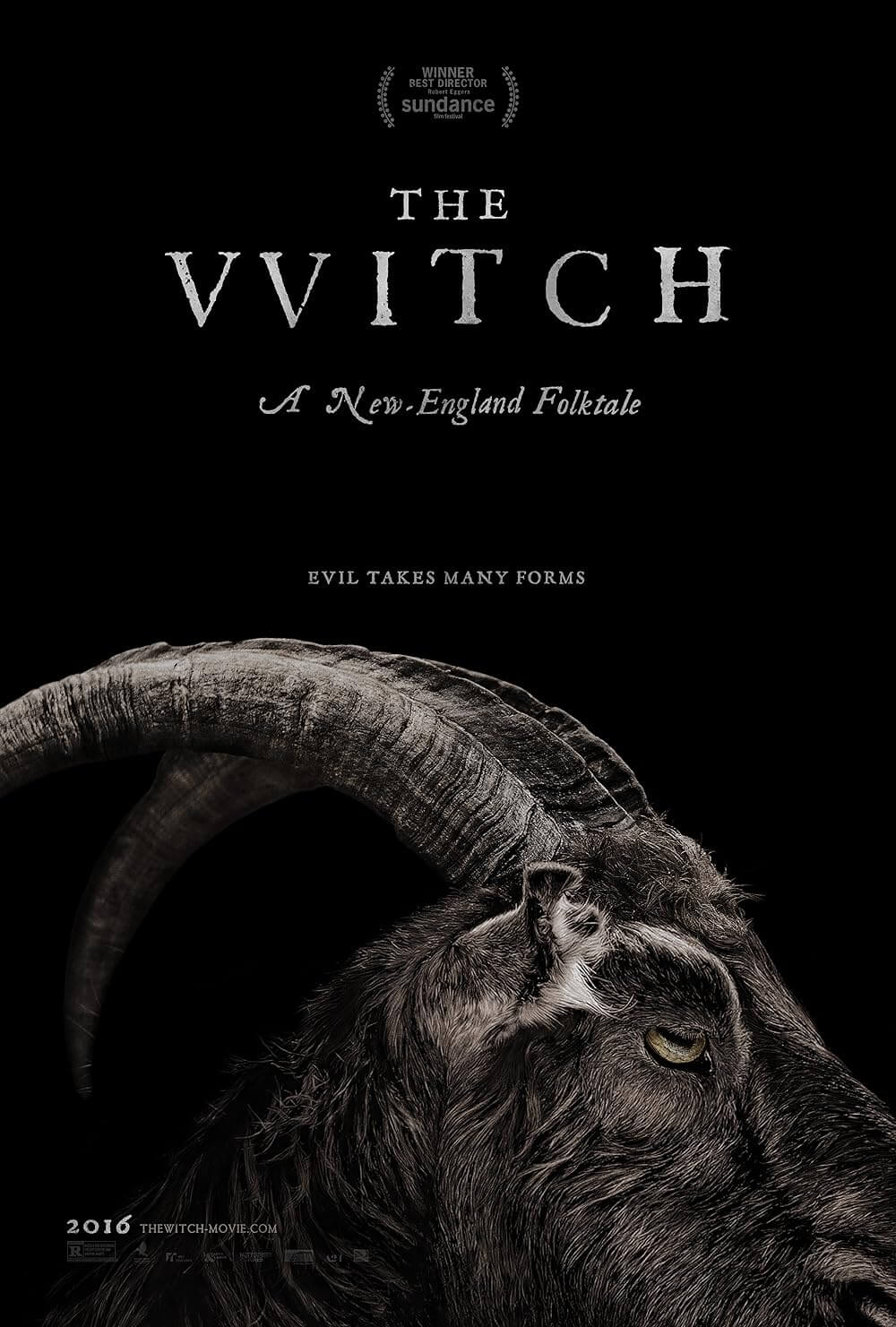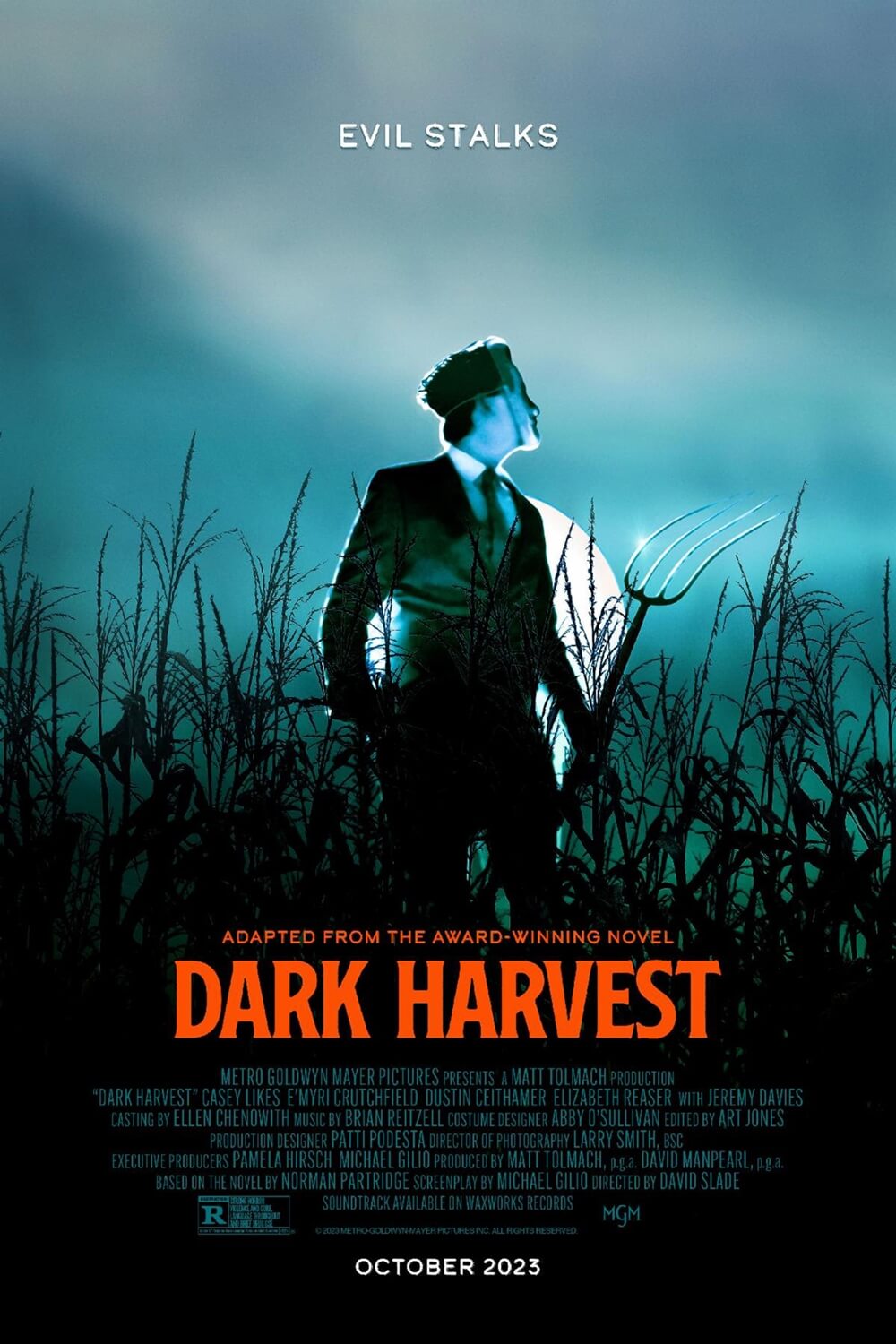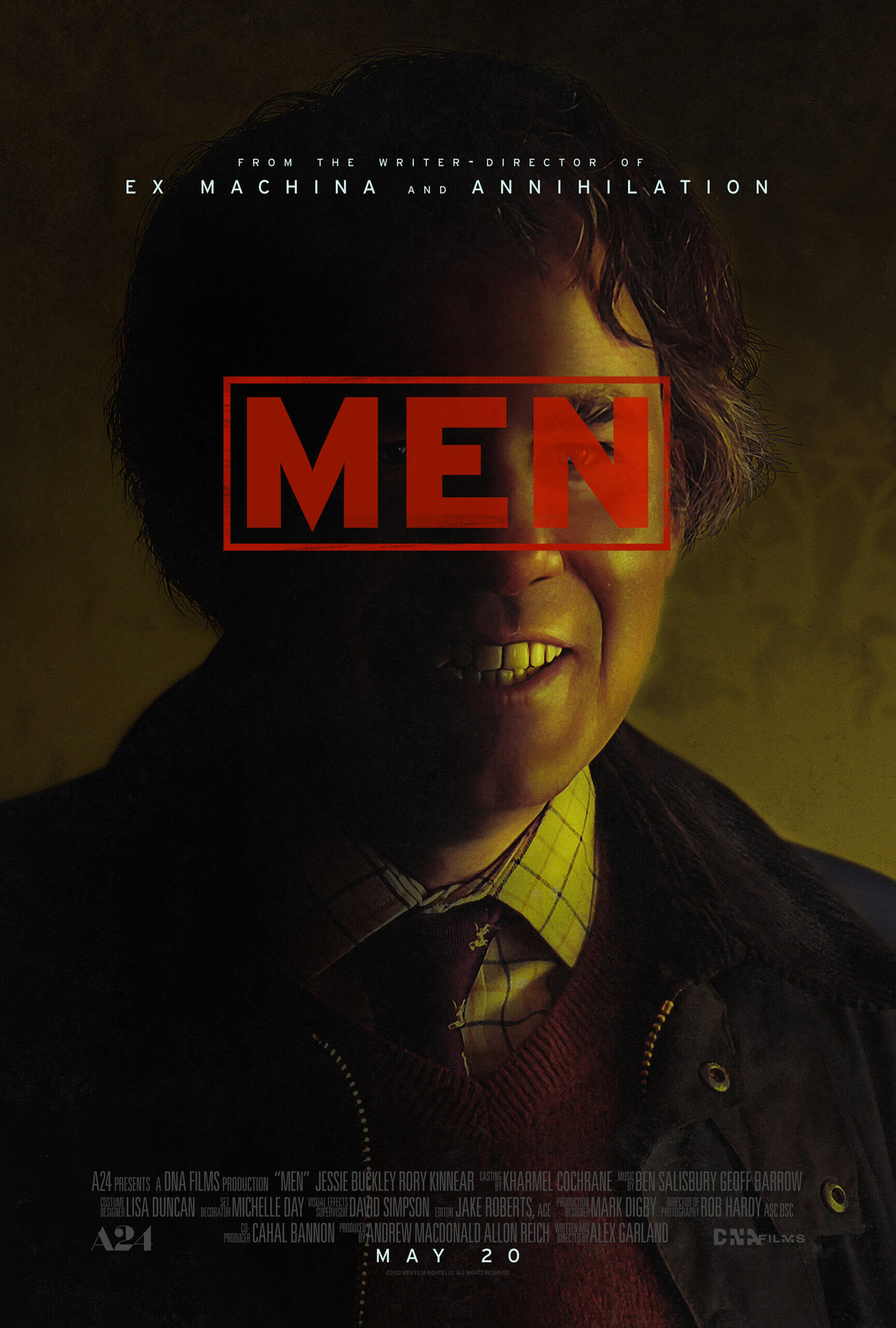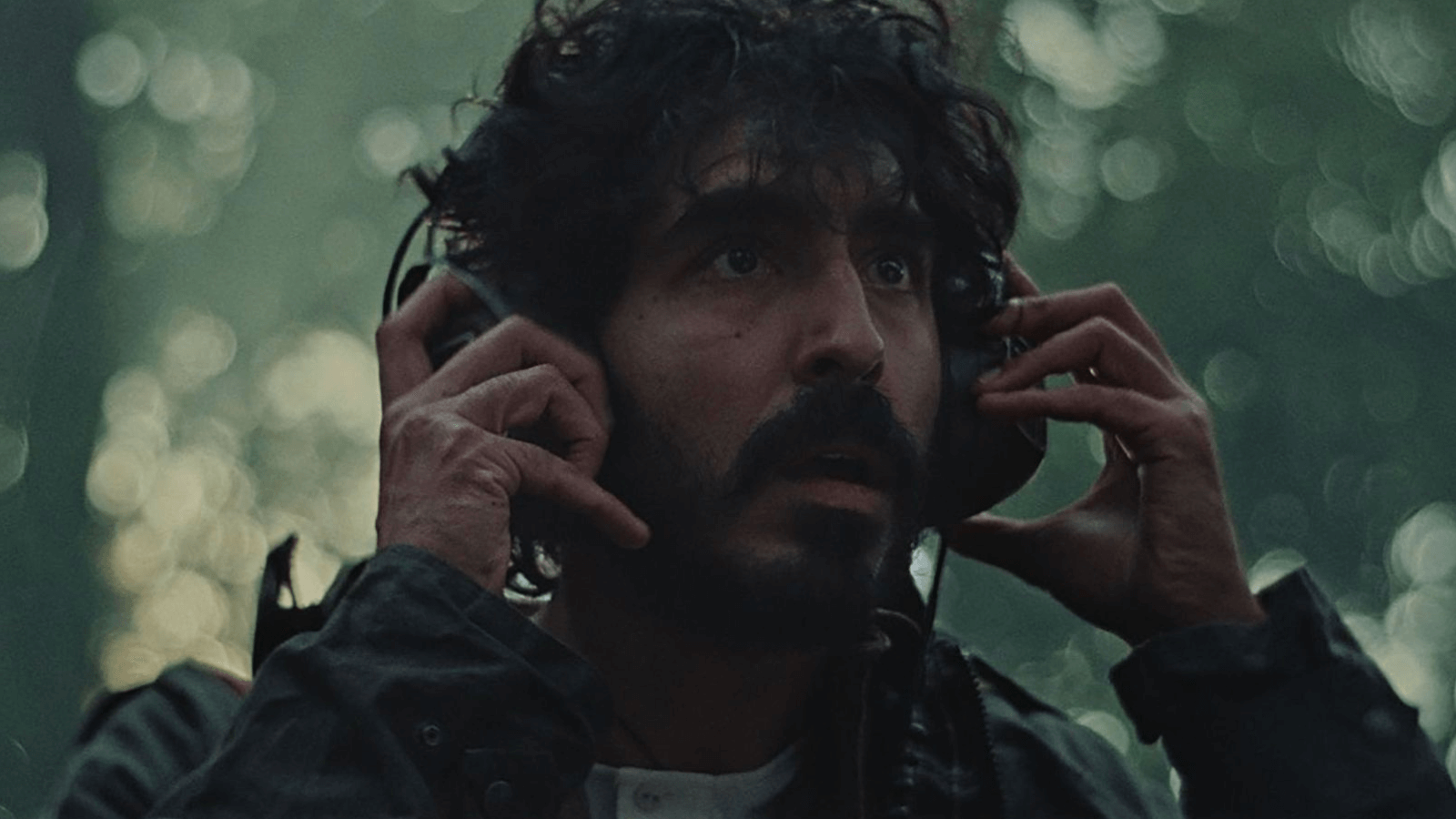
Rabbit Trap
By Brian Eggert |
A blend of folk horror and the Kantian sublime courses through Rabbit Trap, writer-director Bryn Chainey’s cryptic meditation on uncanny sounds and the unknowable sources of folklore. The Welsh filmmaker’s trippy, haunting, and ultimately confounding debut feature combines experimental sound design (both diegetic and non-diegetic) with the mysteries of the planet that, long ago, prompted those who sought to explain the unexplainable to invent fantastical creatures and supernatural reasoning. Nature is comparable to advanced technology in that way—they both look like magic to someone unequipped to explain their secrets. And though the central couple in Rabbit Trap, played by a marvelous pairing of Dev Patel and Rosy McEwen, seem immune to superstition and mythology at first, they soon succumb to a harmony of the electronic, psychedelic, and sylvan.
The opening images show blue spectrogram waves reacting to a woman’s voice. “The shadow has been gifted many names: goblin, demon, faery,” she says. “Listen to the soil,” she continues. “For the earth is a body, and the body is where your secrets live.” Set in 1976, the story takes place in Cymru, the Welsh-language word for Wales, and unfolds around an isolated house amid rolling hills and ancient forests. Having relocated there three months earlier, Darcy (Patel) records the sound of metal clanks, dripping water, and murmurations with a sense of wonder. These sounds represent the raw materials of the music engineered by Daphne (McEwen), his wife, an experimental musician with a workshop full of modulators, sequencers, synthesizers, theremins, and other gizmos. But using technology to distort the sounds of Nature also disrupts the world around them.
Even before the really strange things start to happen in Rabbit Trap, strange things start to happen. Darcy suffers from freaky, honey-hued sleep paralysis dreams about a monstrous figure approaching him in bed. After smoking weed, Daphne makes a chilling statement about our senses—“With your eyes, you enter the world. With your ears, the world enters you.”—that made me want to order some earplugs. Later, Darcy explores the nearby woods, and while picking up sounds of indiscernible whispers and metallic resonance, he crosses a threshold into a ring of mushrooms—referred to as fairy circles—breaking an invisible barrier just before he collapses. These odd and impressionistic events somehow amplify the underlying, nonspecific tension in their relationship, which intensifies when an androgynous, unnamed kid (Jade Croot), a local and self-proclaimed hunter, enters their lives.
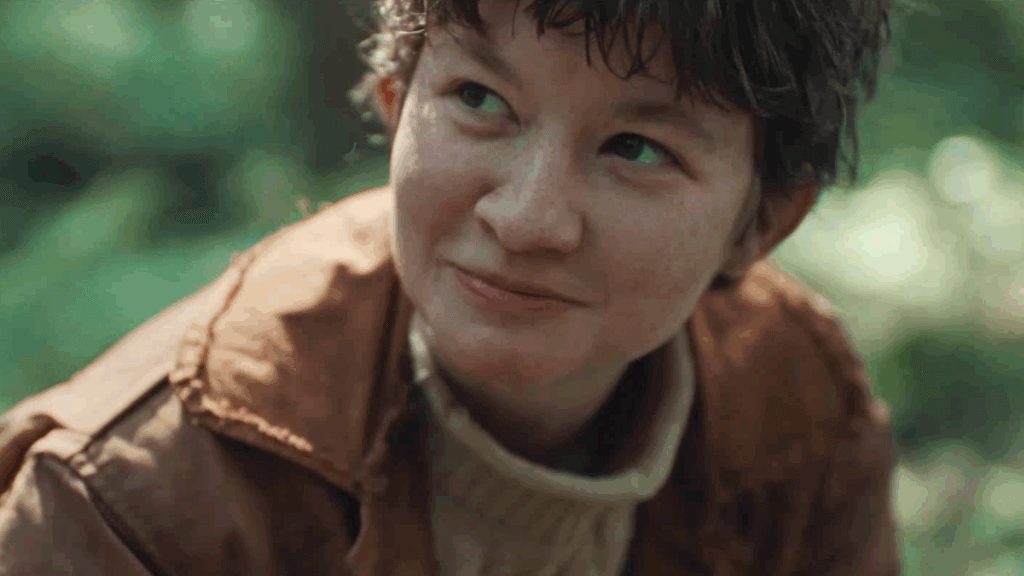
Chainey’s fascinating, vague script nonetheless gives away the setup when the child teaches Darcy how to hunt. First, you find out what the animal is hungry for, Croot’s character explains, and then you trap it. Surely this is a metaphor for what’s happening; however, the particulars remain intentionally ambiguous. The kid also references “the old ones,” forces supposedly held off by a plant on their property. Are ideas like this and fairy circles local superstition, myth (what Darcy calls “just stories”), or simply an aspect of Nature that science doesn’t understand yet? When the child tells Daphne, “You’re one of the wild gods,” is that literal? Before long, Croot’s character grows weird and aggressive toward Darcy and worshipful of Daphne, and the already peculiar sprite goes from bizarre to unnerving.
Given its folkish, planet-god imagery and general resistance to clear interpretation, Rabbit Trap reminded me of Alex Garland’s underappreciated Men (2022), complete with Daphne whistling down a stone-walled path, looming figures in the distance, and echoes both beautiful and unsettling. Given that Chainey begins with experimental music, his film’s soundscape adds a hypnotic layer to the proceedings, with musician Lucrecia Dalt and sound designer Graham Reznick doing much to place us in the phonic headspace. Cinematographer Andreas Johannessen captures the look of grainy, ‘70s-style footage, with a fitting earth-toned color palette that soon gives way to the film’s fungal invasion in the deliriously hallucinatory final stretch. And editor Brett W. Bachman delivers several mind-bending sequences—including a sex scene edited and contorted like the one in Nicholas Roeg’s Don’t Look Now (1973).
Only once does Chainey talk down to his audience, flashing back to the scene where Croot’s character explains how to trap an animal, as if to say, Remember this scene? It’s really important to the point I’m making. Well, obviously, given the name of the movie. Despite this, Rabbit Trap is always engaging. In the end, after the third act confusion, Chainey delivers an experience that would work well in a triple feature alongside 2021’s eco-horror double whammy of Gaia and In the Earth, or perhaps in a different triple feature with Men and this year’s Together. Chainey also draws out three stunning performances from his main cast. Patel seems to show new possibilities in his range with each new performance, and McEwen makes every movie more fascinating with her presence. Her Daphne asks, “Don’t you ever just wanna dissolve, just melt into the Earth?” It’s a line that might sound trite coming from another performer’s mouth, but McEwen sells the line in its bohemian passion, just as Chainey sells the more out-there ideas in his impressive first film.
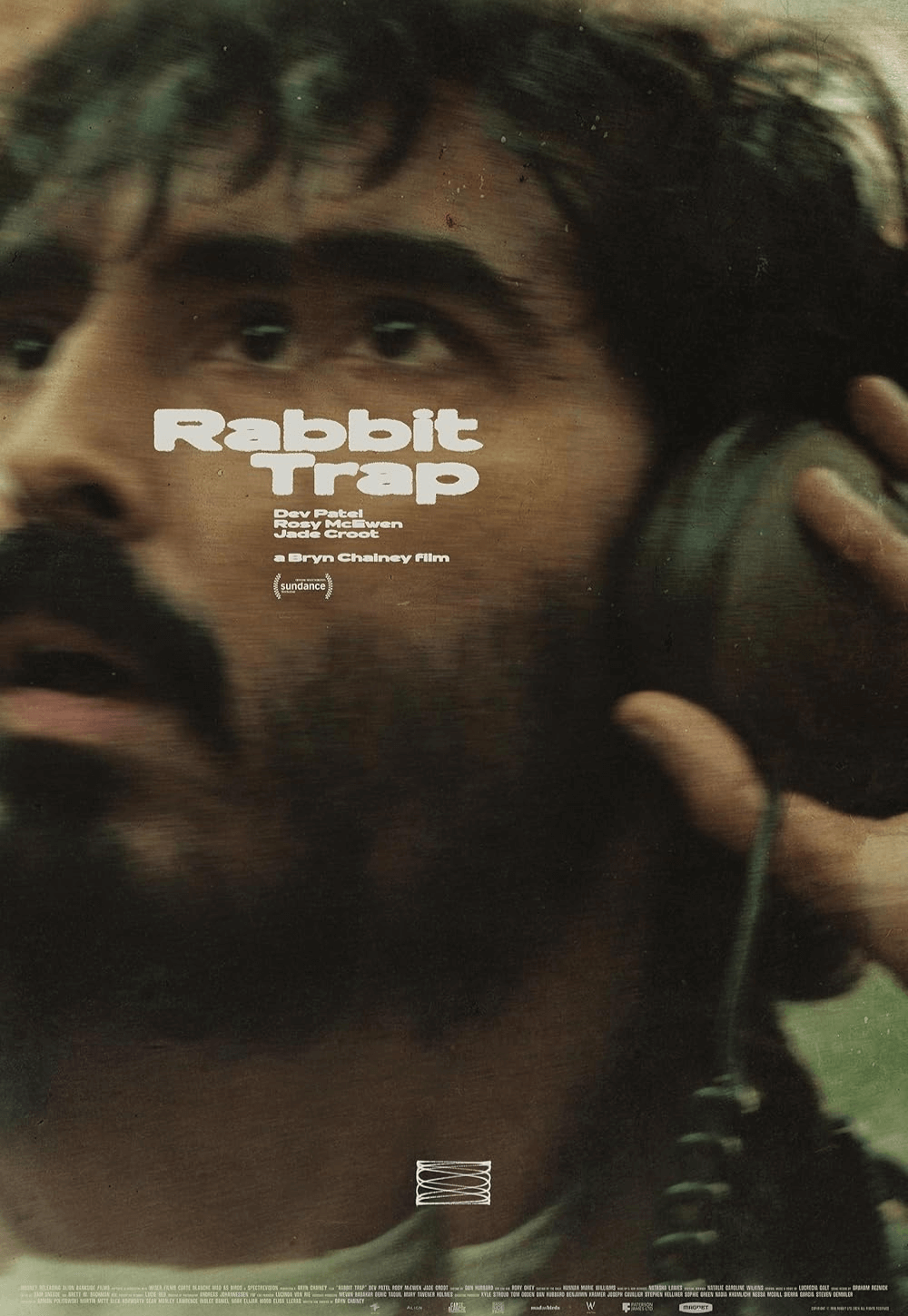
Thank You for Supporting Independent Film Criticism
If the work on DFR has added something meaningful to your love of movies, please consider supporting it.
Here are a few ways to show your support: make a one-time donation, join DFR’s Patreon for access to exclusive writing, or show your support in other ways.
Your contribution helps keep this site running independently. However you choose to support the site, please know that it’s appreciated.
Thank you for reading, and for making this work possible.
Brian Eggert | Critic, Founder
Deep Focus Review


